New Scientist covers the latest developments in science and technology that will impact your world. New Scientist employs and commissions the best writers in their fields from all over the world. Our editorial team provide cutting-edge news, award-winning features and reports, written in concise and clear language that puts discoveries and advances in the context of everyday life today and in the future.
Elsewhere on New Scientist
Space for everyone • We should celebrate the diversity of the next generation of cosmic pioneers
New Scientist International Edition
Mauna Loa erupts • After a cluster of local earthquakes, the planet’s biggest active volcano is erupting in Hawaii, report Madeleine Cuff and James Dinneen
How Y chromosome could be lost • A species of rat from Japan no longer has the male sex chromosome, and some researchers think it offers a glimpse of our own genetic future, says Michael Le Page
Analysis Ukraine invasion • Uncertain future for Ukraine’s nuclear power plants Russia’s attacks on the electrical grid are just one challenge facing Ukrainian nuclear power, says Matthew Sparkes
Death metal singing technique is also used by chatty bats
Boarding school rules help teenagers to get more sleep
Japanese firm races to make first private lunar landing
BBC film used face-swapping AI to hide the identities of Hong Kong protesters
Drones on strings puppeteer people in virtual reality
‘Unselfish’ genes could help us to boost crop yields
Volunteer project uses GPS to spot North Korean missile test
Universal flu vaccine shows promise • Mice given the experimental jab made antibodies against all 20 strains of seasonal influenza
Predator was one of the first fast-growing vertebrates
Paralympian joins new astronauts • European Space Agency plans to explore the feasibility of sending a “parastronaut” to space
Specific brain markers found for ADHD in children
Gliding sensors inspired by seeds biodegrade after use
A 48,500-year-old virus has been revived from permafrost
Mussel numbers have crashed in the river Thames
Meta’s board game-playing AI passes as human
Oldest army ant found in amber • Surprise find in 35-million-year-old tree sap identified as a new species
Huge satellite is brighter than almost all stars
Genetically modified tobacco plant makes cocaine in its leaves
JWST spots chemical reactions in exoplanet atmosphere
Improved urinal reduces splashback • Design inspired by a nautilus shell produces far less splatter than standard models
Dissolvable vaccine could prevent UTIs
Prosthetic leg can help with stairs
Male great bustards may use plants to treat infection
Really brief
Calling for justice • The push for climate reparations is gaining traction post COP27, but voices from the Global South must unite, says Zareen Zahid Qureshi
No planet B • Banding together A life-changing visit to a Ugandan research project on banded mongooses has shown me how international collaboration is vital for conservation, says Graham Lawton
Dress rehearsal
Your letters
A feast for the soul • From concrete dinosaurs to human evolution, exquisite plants to space travel, Simon Ings picks the best non-fiction to give to those you love this year
Spotlight on sci-fi • Uncertainty, dystopia – and hope. This is the sci-fi to share this year, says Sally Adee
The TV column • Getting real Zac Efron’s Down to Earth eco-documentary series set out to make sustainability sexy with a lifestyle approach to climate activism. Now, he is back with a far more serious season two, focusing on Australia, says Bethan Ackerley
Quantum flatlands • A...

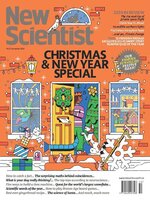 Dec 14 2024
Dec 14 2024
 Dec 07 2024
Dec 07 2024
 Nov 30 2024
Nov 30 2024
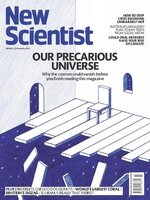 Nov 23 2024
Nov 23 2024
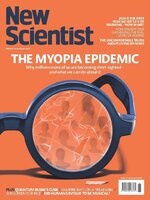 Nov 16 2024
Nov 16 2024
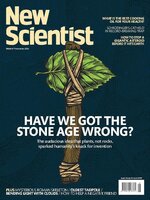 Nov 09 2024
Nov 09 2024
 Nov 02 2024
Nov 02 2024
 Oct 26 2024
Oct 26 2024
 Oct 19 2024
Oct 19 2024
 Oct 12 2024
Oct 12 2024
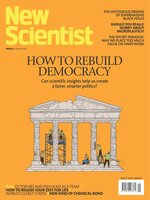 Oct 05 2024
Oct 05 2024
 Sep 28 2024
Sep 28 2024
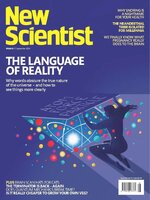 Sep 21 2024
Sep 21 2024
 Sep 14 2024
Sep 14 2024
 Sep 07 2024
Sep 07 2024
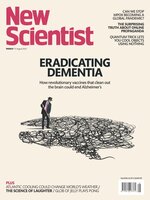 Aug 31 2024
Aug 31 2024
 Aug 24 2024
Aug 24 2024
 Aug 17 2024
Aug 17 2024
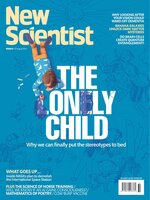 Aug 10 2024
Aug 10 2024
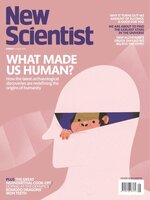 Aug 03 2024
Aug 03 2024
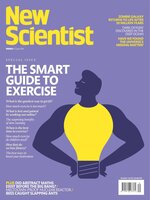 Jul 27 2024
Jul 27 2024
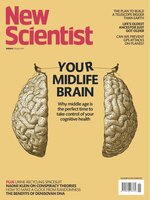 Jul 20 2024
Jul 20 2024
 Jul 13 2024
Jul 13 2024
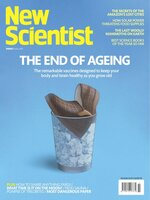 Jul 06 2024
Jul 06 2024
